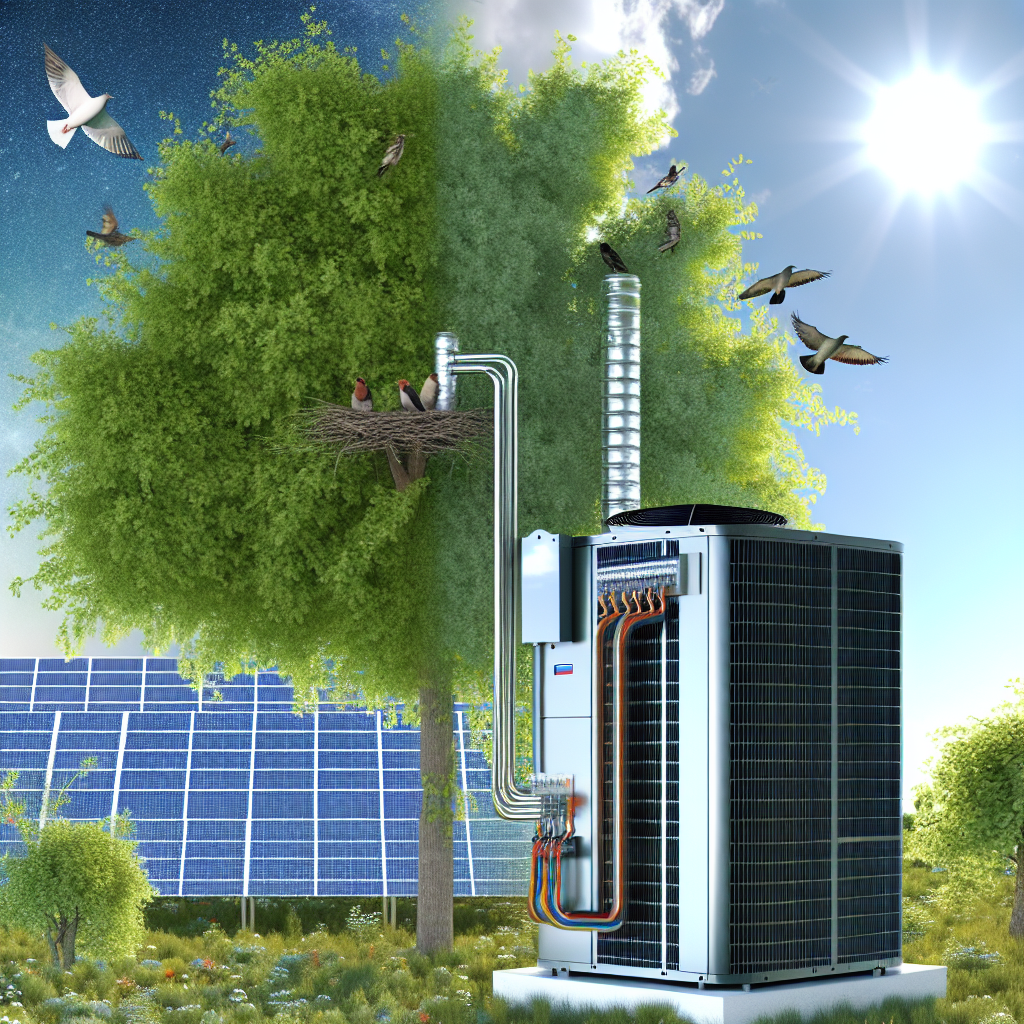Published: Jan 08, 2025

Heating, ventilation, and air conditioning (HVAC) systems play a crucial role in maintaining indoor comfort levels, but have you ever stopped to consider their environmental impact? The energy consumption and refrigerants used in HVAC systems have a significant effect on the environment, contributing to global warming and ozone depletion. In this blog post, we will explore the environmental implications of HVAC systems and discuss ways to minimize their negative effects.
One of the primary environmental concerns associated with HVAC systems is their energy consumption. Heating and cooling buildings accounts for a substantial portion of global energy usage, leading to increased greenhouse gas emissions. Traditional HVAC systems rely heavily on fossil fuels such as coal, oil, and natural gas, which release carbon dioxide and other pollutants into the atmosphere when burned. This not only contributes to climate change but also exacerbates air quality issues.
Fortunately, there are ways to reduce the energy consumption of HVAC systems and lessen their impact on the environment. Investing in energy-efficient equipment, such as high-efficiency furnaces and air conditioners, can help lower energy usage and decrease greenhouse gas emissions. Regular maintenance and proper insulation also play a crucial role in ensuring HVAC systems operate efficiently, ultimately reducing their environmental footprint.
Another significant environmental concern related to HVAC systems is the use of refrigerants. Older HVAC systems often contain refrigerants such as chlorofluorocarbons (CFCs) and hydrochlorofluorocarbons (HCFCs), which are potent greenhouse gases that contribute to ozone depletion. When released into the atmosphere, these refrigerants can have a detrimental impact on the ozone layer, leading to increased UV radiation reaching the earth's surface.
To address this issue, the HVAC industry has transitioned to using more environmentally friendly refrigerants, such as hydrofluorocarbons (HFCs) and hydrofluoroolefins (HFOs). These newer refrigerants have lower global warming potentials and reduced ozone depletion potential compared to their predecessors. By phasing out the use of harmful refrigerants and adopting greener alternatives, HVAC systems can significantly reduce their environmental impact.
In addition to improving equipment efficiency and transitioning to eco-friendly refrigerants, there are other sustainable practices that can help mitigate the environmental impact of HVAC systems. Implementing smart thermostats and building automation systems can optimize energy usage and reduce waste. Encouraging proper system design and regular maintenance can also enhance HVAC system performance while minimizing energy consumption.
Furthermore, incorporating renewable energy sources like solar power and geothermal heating can further reduce the carbon footprint of HVAC systems. By harnessing clean and renewable energy sources, buildings can decrease their reliance on fossil fuels and mitigate the environmental impact of heating and cooling operations.
In conclusion, HVAC systems have a substantial environmental impact due to their energy consumption and use of refrigerants. However, by embracing energy-efficient technologies, transitioning to environmentally friendly refrigerants, and adopting sustainable practices, we can reduce the ecological footprint of HVAC systems and promote a greener future. It is essential for both HVAC professionals and building owners to prioritize sustainability and environmental responsibility in HVAC system maintenance and operations.

Our expert technicians are ready to assist you 24/7!
Contact Us Today!Read our latest articles for helpful information about heating, cooling, and air quality.
Smart thermostats offer energy savings, convenience, learning capabilities, and integration with smart home systems, mak...
Read MoreMaintaining good indoor air quality is crucial for reducing allergy symptoms during allergy season. Regular cleaning, p...
Read MoreRegular air duct cleaning offers a multitude of benefits, including improved air quality, enhanced energy efficiency, p...
Read MoreRecognizing signs such as age, rising energy bills, frequent repairs, uneven heating/cooling, and strange noises/odors...
Read More